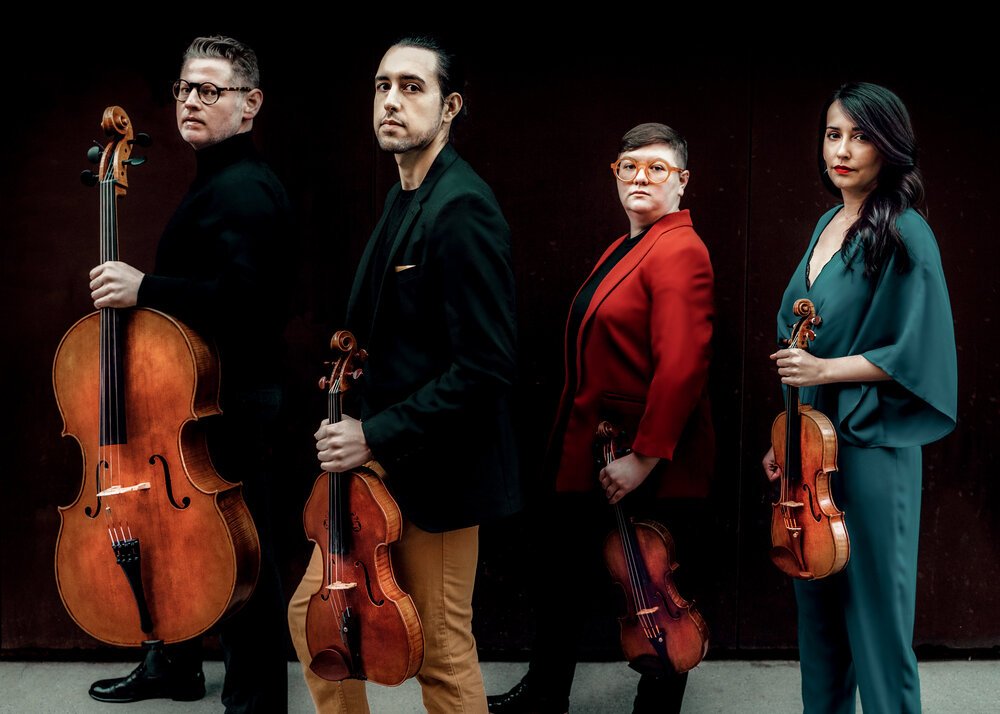by Peter Feher

The performance hardly counted as a sneak peek, though. The repertoire the ensemble settled on for its June 8 concert at the Cleveland Institute of Music, part of this year’s Lev Aronson Cello Festival, consisted of pieces the Quartet has lived with for some time (in a couple of cases, since its founding a decade ago). In addition to the usual close-knit connections among members of a chamber group, the Catalyst players had the extra benefit of all the familiarity that comes from having a long relationship with a work of music.
The strong interpretations that result have a larger purpose, too. “What we thought would be one album has turned into a multi-volume anthology,” said cellist Karlos Rodriguez, describing the Quartet’s mission in recent years. Excerpts from the third installment of Uncovered, the group’s recording project that advocates for historically overlooked Black composers by exploring their music in depth, made up most of Wednesday’s program.
William Grant Still’s Lyric Quartette is exactly the sort of gem such a survey should yield. The composer’s lush, open sound — often taken as emblematic of the American spirit in the same way as Aaron Copland’s writing — takes a personal turn in this piece, which offers musical portraits of three close friends across its movements.
“The Sentimental One” had the Catalyst players maintaining a beautiful, full-throated tone, in contrast to “The Quiet One,” which began and ended sans vibrato. The rhythms and accents of “The Jovial One” verged on aggressive at times, delivered in a style that, while overwhelming in person, would likely sparkle on a recording.
The ensemble crafted similarly compelling characters with Coleridge-Taylor Perkinson’s String Quartet No. 1 (“Calvary”), from a reverential chord that rang out at the end of the opening Allegro to a funky finale imbued with blue notes and slides. In the central Adagio, Abi Fayette approached the first violin part with admirable restraint, setting the movement in motion with steady pizzicato playing before taking up a muted solo line.
The Catalyst deviated from its Uncovered mission with two popular string selections, though each had an important catch. The ensemble put passion and unique understanding behind their interpretation of George Walker’s Lyric for Strings, the enduring excerpt from that composer’s String Quartet No. 1, which features in full on the upcoming album.
And Strum, written by former Catalyst member Jessie Montgomery, wouldn’t be the crowd-pleaser it is today without the Quartet’s contributions. The piece took off as Rodriguez, Fayette, violinist Karla Donehew Perez, and violist Paul Laraia dug into their parts with energy.
A brief encore, Caroline Shaw’s Bittersweet Cinnamon, let the ensemble tease an unrelated project, still in the works — no surprise from a group of musicians who stay so plugged in.
Published on ClevelandClassical.com June 15, 2022.
Click here for a printable copy of this article



